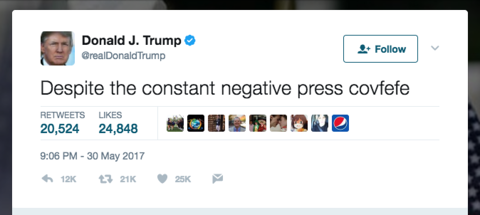[ad_1]
Parler. Gab. Rumble. MeWe. DLive. Over the last four years, a small constellation of newish social media sites and web platforms has found favor with those on the political right who see the heavy hand of censorship in Facebook’s and Twitter’s tightening policies against hate speech and violent rhetoric.
Now, with President Trump “permanently suspended” from Twitter and indefinitely locked out of Facebook in the final days of his presidency, this fringe ecosystem — call it the Trumpnet — may be poised to break into the mainstream, with his help. But it may have to sacrifice its “anything goes” ethos.
On Friday, hours after Twitter announced the ban over the risk of further escalation after Trump’s incitement of a violent riot at the U.S. Capitol, he took to the official @POTUS account to say: “We have been negotiating with various other sites, and will have a big announcement soon, while we also look at the possibilities of building out our own platform in the near future. We will not be SILENCED!” (Twitter quickly removed the tweets, saying it was a violation of policy to use an alternative account to evade a ban.)
By Saturday evening, Parler, which has perhaps been best positioned to catch any exodus following Trump from mainstream social media, had been blocked from Apple’s and Google’s app stores and told it would be kicked off Amazon’s web hosting service, with the companies saying the platform must do a better job at removing violent threats and other harmful content.
For a businessman who leveraged his television celebrity and branding prowess into an unlikely presidential victory, and who is now days away from returning to the private sector, the loss of accounts that reach hundreds of millions of consumers carries a high cost.
Lena Young, director of communications at influencer marketing agency Klear, noted that Trump’s large follower counts on the biggest social media platforms — 88.8 million on Twitter, 33 million on Facebook, 24.6 million on Instagram — and high engagement metrics have significant financial value.
“In the past 30 days, Trump tweeted 18.5 times per day, and [got] a total of 17,198,229 retweets, and 79,915,702 likes,” Young said in an email. “If Trump wanted to generate the same results through paid media, he would need to spend approximately $2,196,506 per month.”
If Trump is stripped of his social media megaphones, he represents a gigantic potential bounty for any of the smaller, free-speech-focused, conservative-oriented platforms that have sprung up from the wreckage of his years-long brawl with Big Tech.
Trump supporters who want to withhold their use of Twitter, Facebook, YouTube and Twitch can find analogs, of a sort, in Parler, MeWe, Rumble and DLive. Refugees of Reddit’s r/The_Donald forum, banned from the platform for promoting hate, now gather at TheDonald.win.
The ratcheting enforcement actions by Facebook and Twitter aimed at curbing misinformation about the election and the COVID-19 pandemic seemed to be driving growth for these services, at least until Apple, Google and Amazon brought the hammer down.
After the 2020 election, Parler temporarily became the No. 1 app on Apple’s App Store and reported more than 4.5 million registrations in the span of a week. Gab, whose embrace of “free speech, individual liberty and the free flow of information online” has made it a haven for the far right, has claimed to have more than 1 million accounts; in a post Friday, founder Andrew Torba said the service is “scaling up as fast as we can” in the face of “record traffic.” Rumble and MeWe also say they’ve seen user registrations skyrocket; the latter claims to have added 1 million users in the week after the election, Vice reported.
The question is whether Trump, after the Twitter ban, will follow his fans — especially to Parler, the pseudo-Twitter that has drawn many of the biggest MAGA-sphere celebrities. Launched in 2018, it has been a darling of the right, enjoying shout-outs from Sen. Ted Cruz (R-Texas) and money from GOP mega-donor Rebekah Mercer.
Although Fox News’ Sean Hannity claimed Thursday that Trump had joined Parler, Newsweek reported that the president did not seem to have an active, verified account on the platform; Reuters fact-checkers confirmed as much. Neither Parler nor a White House representative responded to a request for comment.
Yu Ouyang, an assistant professor of political science at Purdue University Northwest and coauthor of “Trump, Twitter, and the American Democracy,” is skeptical Trump would be willing to limit his media presence to friendly audiences. Speaking before Twitter imposed its permanent ban, Ouyang noted that the president gets attention from liberal detractors on Twitter that he wouldn’t find on Parler.
“Trump’s Twitter account has existed since 2009, but it wasn’t until a couple of years later that he really started taking advantage of it, and he only did so because there was an advisor … showing him the potential,” Ouyang said. “So Trump by himself isn’t going to make that decision to move. Somebody close to him has to make that recommendation.”
But the loose content-moderation policies that have made Parler a refuge for Trump’s most rabid fans also make it a target for higher-level moderation.
Imposing its ban Saturday, Apple wrote, “We have determined that the measures you describe are inadequate to address the proliferation of dangerous and objectionable content on your app.”
Bloomberg was used in compiling this report.
[ad_2]
Source link
